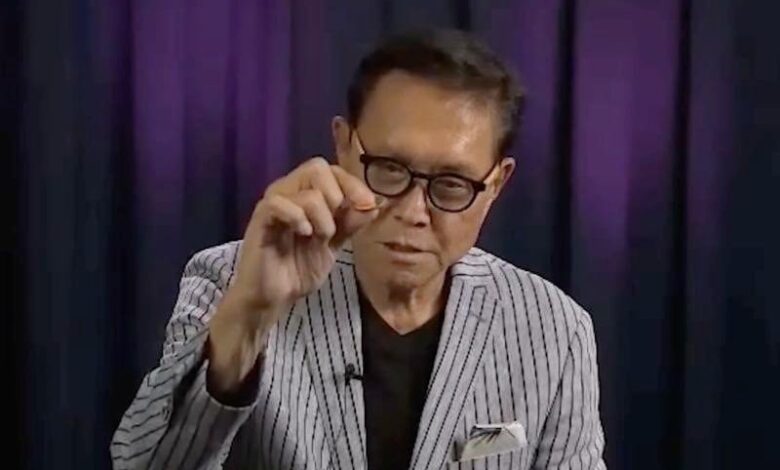
Renowned investor and author of the best-selling book Rich Dad Poor Dad, Robert Kiyosaki, recently took to social media to criticize an unnamed gold enthusiast for their negative comments about MicroStrategy’s (NASDAQ: MSTR) Bitcoin investment strategy.
Defending MicroStrategy’s Bold Bitcoin Moves
In a post shared on November 23, Kiyosaki referred to the critic as ‘Mr. Big Mouth No Balls,’ accusing them of hypocrisy. He pointed out that the critic attacked Michael Saylor, the executive chairman of MicroStrategy, for investing in Bitcoin, while seemingly preferring the company to have invested in gold instead.
Kiyosaki praised Saylor for his strategic use of the company’s resources to acquire Bitcoin, describing him as a “genius.” According to Kiyosaki, this approach has not only generated wealth for Saylor and his company but also benefited its investors.
Kiyosaki’s Perspective on Wealth Protection
Kiyosaki questioned whether the critic would be satisfied if Saylor had opted to purchase gold instead of Bitcoin. He expressed his admiration for Saylor’s Bitcoin investment strategy, noting that although he might not be investing at the same scale, he is following a similar path to enrich himself and his employees, particularly in these uncertain financial times.
As a long-time advocate for gold and silver, Kiyosaki emphasized the importance of Bitcoin as a hedge against what he describes as ‘fake dollars’ produced by the Federal Reserve. He continues to invest in precious metals due to concerns about the Central Bank’s monetary policies and the perceived inefficiencies within the Treasury Department.
Bitcoin vs. Gold Debate
Kiyosaki, who has issued warnings about a potential economic crash, downplayed the debate between Bitcoin and gold, viewing both as essential assets for safeguarding wealth.
MicroStrategy’s Bitcoin Strategy Under Scrutiny
Although Kiyosaki did not name the critic, it is notable that economist and gold proponent Peter Schiff has been vocal in his criticism of Saylor’s Bitcoin strategy. Schiff argues that MicroStrategy’s investment in Bitcoin is risky and could lead to financial instability, especially in a recession.
Schiff has expressed skepticism about MicroStrategy’s issuance of $3 billion in convertible debt to acquire more Bitcoin, labeling the strategy as a ‘Ponzi scheme.’ He claims that the company’s reliance on selling shares and accruing debt to fund Bitcoin purchases is not sustainable.
Concerns Over MicroStrategy’s Financial Strategy
Schiff warns that if MicroStrategy cannot continue to sell shares, it may be forced to liquidate its Bitcoin holdings, potentially causing a market upheaval. He suggests that the company’s strategy hinges on U.S. taxpayers inadvertently becoming the financial backstop.
Despite these criticisms, MicroStrategy has emerged as one of the top-performing stocks, buoyed by Bitcoin’s price surge. Some analysts argue that the company’s strategic use of leverage to enhance returns through capital markets access distinguishes its stock from other Bitcoin investment methods, such as spot Bitcoin ETFs.
Institutional Interest in MicroStrategy
MicroStrategy has seen increased interest from institutional investors, with its institutional ownership rising significantly by the end of the September quarter. Notable investors include Vanguard Group and Capital International Investors, which collectively acquired nearly 16 million shares in Q3, marking a substantial increase.
MSTR Stock Performance
As of the latest data, MicroStrategy’s stock (MSTR) is trading at $425, marking a 6% increase over 24 hours and an impressive 515% rise in 2024 alone.
In conclusion, while Kiyosaki defends Michael Saylor’s forward-thinking Bitcoin strategy, potential investors should consider the risks involved, as MicroStrategy’s plan is still evolving despite its significant returns.
“`







